What Can Goats Eat?
Khai DoveFeeding goats is not a difficult task. As they belong to ruminants, in summer the basis of the diet is green grass, and in winter – dry hay. Of course, the animal, like a human, wants more delicious and diverse. And for health, good milk yield and complete goats should be provided with a complete diet, which contains all the necessary substances and elements. And if we are talking about dairy breeds, whose milk yield is 8 liters per day, then their diet should not only be balanced in composition but also simply abundant. The menu of goats differs depending on their breed, age, season, and other conditions.
Feeding in the summer period
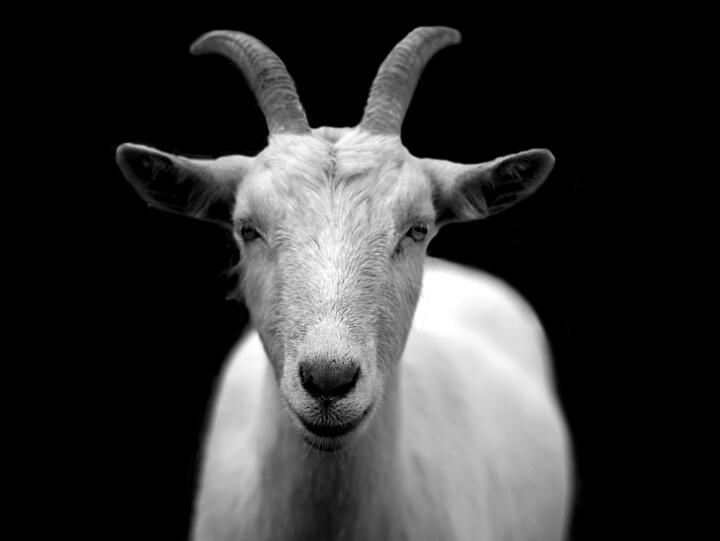 Photo by Pixabay on pexels
Photo by Pixabay on pexelsThe goat, which regularly goes to the pasture, eats up to 8 kg of fresh grass during the day. This mass of feed gives enough plastic elements to produce a couple of liters of milk. Therefore, if the owner is interested in higher yields, he should provide a full supplementary feeding with concentrated feed:
•Grain (oats, barley, corn).
•Grain legumes (peas, beans, lentils).
•Ready factory compound feed.
Such feed is given ground at the rate of half a kilogram per animal per day.
Most often juicy and nutritious grass pasture can provide goats not all summer, but only until mid-July. Then the plants begin to dry up a little and in the daily goat’s diet have to add in addition to concentrated feed also branches of trees, vegetables or food waste.
As for mineral nutrition, we will need it:
Correct cooking salt, adding it to the food 15 – 20 g of each goat a day. The optimal option is an iodized version of this food product.
Also, add 12 grams of a mixture of chalk and bone meal in equal proportions.
The approximate daytime menu of an adult goat in summer will look like this:
•Morning – combined feed or bran in soaked form;
•After milking – pasture grazing;
•Evening – combined feed in combination with any juicy feed (carrots, potatoes, cabbage leaves, apples, pumpkin, etc.).
•Before going to bed – a small amount of hay.
As for the water, it should be constantly available to goats both during the day and at night.
Feeding in winter
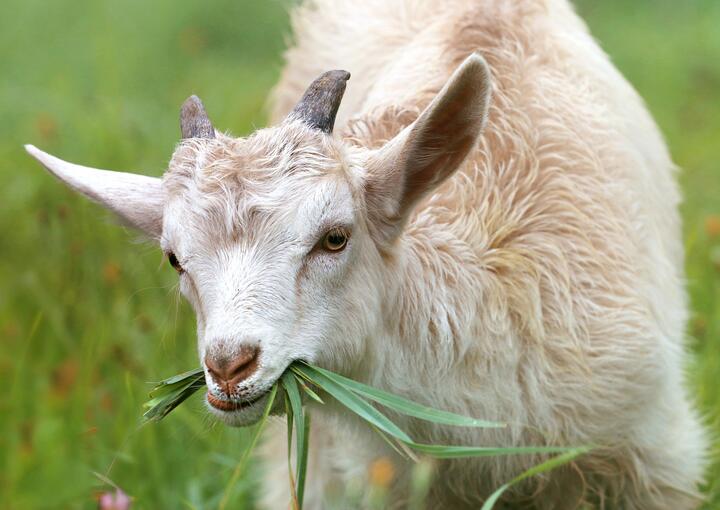 Photo by Pixabay on pexels
Photo by Pixabay on pexelsThe main food for goats in winter is hay. It is a rough food, which is eaten by ruminants with pleasure. Its nutritional value is not very high, so the animals should eat it in the future.
As an option, the straw will also do, but it contains even fewer nutrients.
For goats, deciduous varieties of hay are preferable, and the quality of hay is also very important.
During the day, goats, depending on gender and age, should be provided such nutritional standards:
If there is a lack of hay, it is allowed to replace it with brooms, but they should still be fed at least 1,000 grams of hay during the day. In terms of nutritional value, 1 000 grams of quality meadow hay corresponds to 2 000 grams of brooms.
Another substitute for hay can be dried leaves of trees, which are used as both forage and bedding. An accessible source of natural vitamins in winter is the young growth of pines and spruce.
In addition to rough forage, goats also need juicy forage:
•Fruit.
•Vegetables.
•Silage.
•Food waste.
Vegetables and fruits are a real treat for goats, animals are happy to eat any of their varieties, both cooked and raw. It is also possible to dry a sufficient amount of such food in summer, it will also be eaten with appetite. Raw fruits and vegetables should be washed and sliced before feeding.
As for food waste from the table of the hosts, they should be pre-cooked and given to animals mixed with feed.
The dairy goat should eat within a day from 500 to 1 000 grams of mixed feed or bran. Factory mixed feed is successfully replaced by a mixture of ground seeds of cereals and leguminous crops. Whole grains of goats are contraindicated.
Can goats eat carrots?
Goats eat carrots, beets, fodder watermelon, fodder pumpkin, and corn silage well.
In all seasons, the main emphasis should be on succulent fodder, as it is enriched with a lot of nutritious and useful components:
Grass – this segment should be in the diet of the animal. Juicy grass is one of the most affordable and cheapest types of feed. After moving the animals to pasture in the woods, fields, or meadows, they will be delighted to enjoy the juicy grass.
What do goats eat? What fodder and in what quantity should goats be given? If it is possible to get a haulm, you should use it. Cabbage leaves, beet loaf, and other “waste” – is a treasure trove of vitamins, which the animal needs for the proper functioning of the body. But it should be noted that it is necessary to add chalk to the greens to reduce the concentration of acid, as a rule, for each kilogram of a bottle one gram of chalk is taken.
Silage belongs to juicy foods and is considered one of the most useful nutritional supplements. Goats like it and are absorbed with great pleasure. The owner should carefully monitor the quality of the product because quite often due to improper storage, it quickly peroxides. In terms of calories, nutritional value, saturation with vitamins, macronutrients, and trace elements, it is identical to fresh grass. Also, silage promotes the absorption of coarse food, which we will talk about later. The daily consumption rate should not exceed 4 kilograms.
Vegetables. In winter, the cattle should be provided with a large number of vegetables, for example, fodder beet, potatoes, cabbage, and carrots. They can be fed as waste or raw. As a rule, root vegetables are thoroughly crushed and give at least 3 kg a day. Potatoes can be given to goats only in boiled form.
Fruit. It is quite difficult to imagine, but the fruit is the favorite product of this animal. Goats can be fed in large quantities to apricots, plums, peaches, separated from the stones, pears, and apples.
The main advantage of juicy food is its composition, which is enriched with proteins, vitamins, minerals, and other nutrients. The necessary amount of juicy fodder will contribute to an abundance of milk.
Can Goats Eat Carrots?
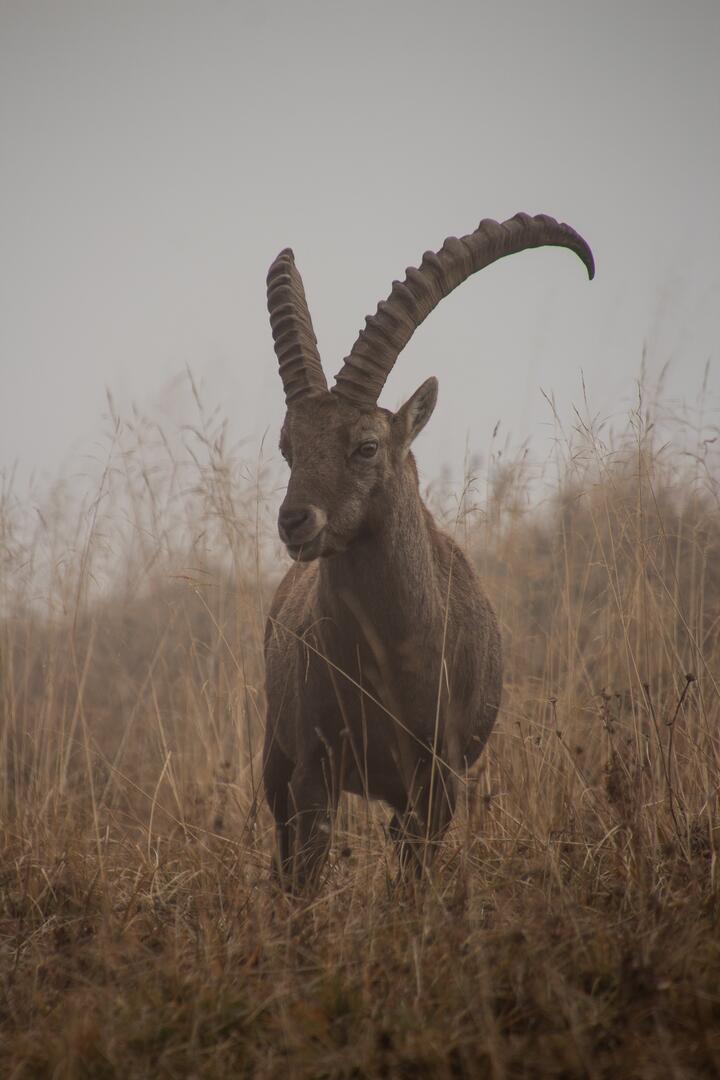 Photo by Adrian Lang on pexels
Photo by Adrian Lang on pexelsWhile it is perfectly safe for goats to eat carrots, it is not recommended for a regular part of a goat’s diet. While they are nutritious and are good for your goat’s bones, you should keep in mind that carrots can cause stomach problems, urinary calculi, and excessive weight gain. In addition, they can cause an allergic reaction in some goats, so you should avoid feeding them too much them. In addition, don’t forget to wash the carrots to remove any dirt or debris.
Although it may be tempting to offer your goat carrots, limiting their amount is important. Overfeeding carrots can cause digestive problems and may cause excess bloating. To keep your goat healthy, feed it only in moderation. Remember that it should be mixed with hay or a mixture of hay. Fresh carrots are better than cooked ones, as they contain sugar. Also, a constant supply of carrots can cause your goat to spit up, which can be harmful.
However, you should consider the health risks of carrots for goats before introducing them to them. While eating too many carrots for your goat can lead to weight gain, it can also lead to cardiovascular problems. Additionally, carrots contain a lot of carbohydrates, which can lead to a faster weight gain. In addition, too much of it can cause a digestive upset or a choking hazard. So, be careful before you give your goat carrots!
Carrots can be dangerous for your goat. Cut the carrots into small pieces and let your goat chew the food. Make sure that your goat is old enough to chew the carrots. It is important to remember that it is essential to cut the carrots vertically in order to prevent choking. If you do not cut them vertically, your goat may choke on the piece. But, carrots can also cause digestive issues. If you feed your goat carrots regularly, you should watch for bloating and excessive weight gain.
You should give your goat carrots in moderation. If you’re feeding them whole carrots, they can cause impaction. Then, the carrot should be discarded. This is not recommended because it is dangerous for the goat’s health. Even if you’re feeding your goat carrots in small pieces, you should cut the carrots into smaller parts. The pieces should be smaller than the size of the goat’s mouth.
While carrots are not poisonous for goats, they can cause diarrhea and gastrointestinal issues. While most fruits and vegetables are safe for goats, some vegetables are toxic for them. Try to choose the ones that are safe for the goats’ health. Do not overfeed them with carrots. A small portion of the carrot should be enough to satisfy the goat. In addition to being healthy, they’re also good for your goats.
However, carrots should be fed in moderation. Ensure that you buy organically grown carrots without pesticides and cut them into pieces that are suitable for goats. In addition to carrots, goats will also eat raisins, garlic croutons, and other food that has the same scent as goats. They will also consume large quantities of hay. While they can’t ingest carrots, they do like them.
Young goats can eat carrots, but they won’t eat the leaves or tops. This is because their digestive system is not fully developed yet. Moreover, they cannot digest food with high fiber. But as they grow, they can start eating the tops of carrots. Once they are weaned from their mother’s milk, you can also give them some carrot greens. They are also useful for goats since they are herbivorous.
Goats can eat carrots, and it is important to make sure that they are not too picky. Typically, carrots should be fed to goats only if they are too young or haven’t started to eat yet. While adult goats are generally not fond of carrots, they should be given to younger kids and pregnant does. The best way to give them carrots is to chop them up before you give them to them. It’s possible to feed them the whole, but too much can cause problems.
- WildlifeHow Is Orangutan Strength And Dangerous?

- WildlifeWhat Do Crabs Eat In The Ocean?By Karla Miller

- Rodents7 Interesting Facts About LemursBy Camilo Walker

- WildlifeWhat Is The Koala Bear Diet?By Lucas Torres

- LivestockWhat Do Donkeys Eat In The Wild?By Murphy Scott
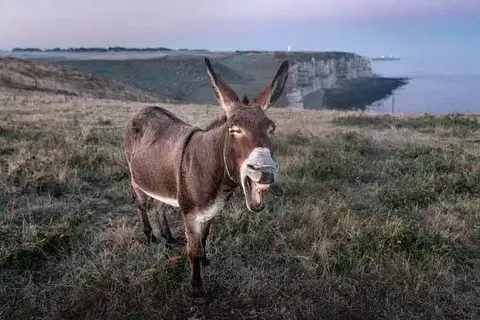
- Insects15 Interesting Facts About LadybugsBy Noah Young

- Dogs23 Interesting And Fun Facts About DogsBy Khai Dove

- DogsTips For Traveling On The Road With Your DogBy Amelia B

- RodentsCan Guinea Pigs Eat Apples?By Nolan Foster
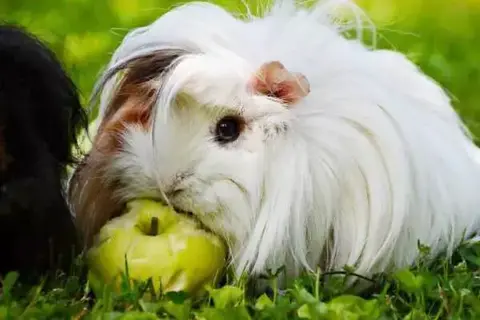
- RodentsHow Often To Bathe Guinea PigBy Karla Miller
